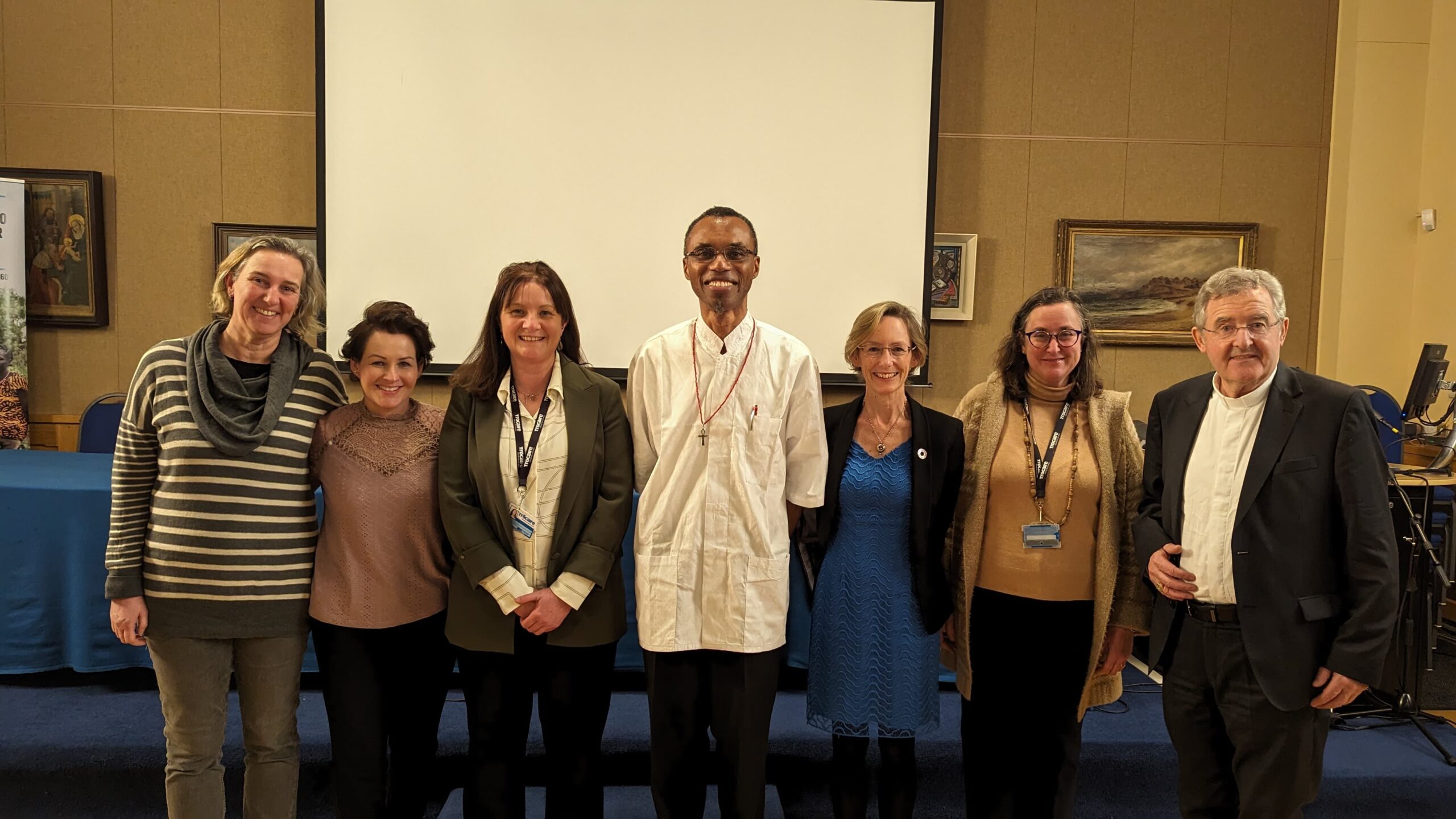On 5 March Rev Agbonkhianmeghe E. Orobator, SJ (pictured above with Trócaire team and Bishop William Crean of Cloyne) delivered the Saint Patrick’s College Maynooth annual Trócaire Lent lecture entitled: “Climate Justice and Catholic Social Teaching: “Everything is connected” and “No one is saved alone” (Laudate Deum, 19).
In his address, Father Orobator noted that in this era of ecological crisis, “the prophetic voice of Pope Francis rings loud and clear” and highlighted the contribution which Catholic Social Teaching can make to help address the multiple crises our world currently faces. These teachings seek to analyse realities through the lens of faith and are grounded in the real-life experiences and situations of people around the world. Father Orobator noted: “Climate justice grounded … in the tradition of Catholic Social Teaching offers a vision of an ethics of solidarity and compassion, a culture of care and encounter, and a spirituality of mutuality and safeguarding. It is an “ecological Ubuntu”.
Ubuntu is a word which translates to mean, “I am, because you are”. We can’t exist as humanity in isolation from one another. Pope Francis echoes this in Laudato Deum, reminding us that a fundamental bond exists between human beings and their natural environment, and the ethical dimension of such bondedness should inform and determine choices, policies, and actions at personal, family, community, national and international levels, especially actions to mitigate the burden of climate change on the poor and vulnerable (LD 70-72). The agony of the earth is the anguish of humanity; the fate of the earth is the burden of the poor.
In the context of the present ecological crisis, Father Orobator stated that the commitment to healing the earth must now shift from narrating the threat of destruction to proclaiming the imperative of drastic and intense actions toward ecological salvation – a commitment by all to comprehensive decarbonization, fossil fuel non-proliferation, and grant-based climate financing ‘to prevent even greater evils over time’ (LD 59). He notes that is offers us an opportunity to become advocates and practitioners of climate justice, rooted in ecological Ubuntu.
“We run an existential risk if we outsource this endeavour to politicians, technocrats, lobbyists, and carbon traders. No one can be a bystander in today’s drama of climate change – which is why Francis encourages us to become protagonists of ‘small everyday things’ (Gaudete et Exsultate, 143) and ‘little everyday gestures’ (LS 231); practitioners of ‘simple daily gestures’ (LS 230) and ‘small gestures of mutual care’ (LS 231),” Father Orobator concludes. Everyone has a role to play in addressing the current environmental challenges.
To watch Father Orobator’s full lecture click here. Father Orobator’s paper will also be published in the April edition of The Furrow.
ENDS


